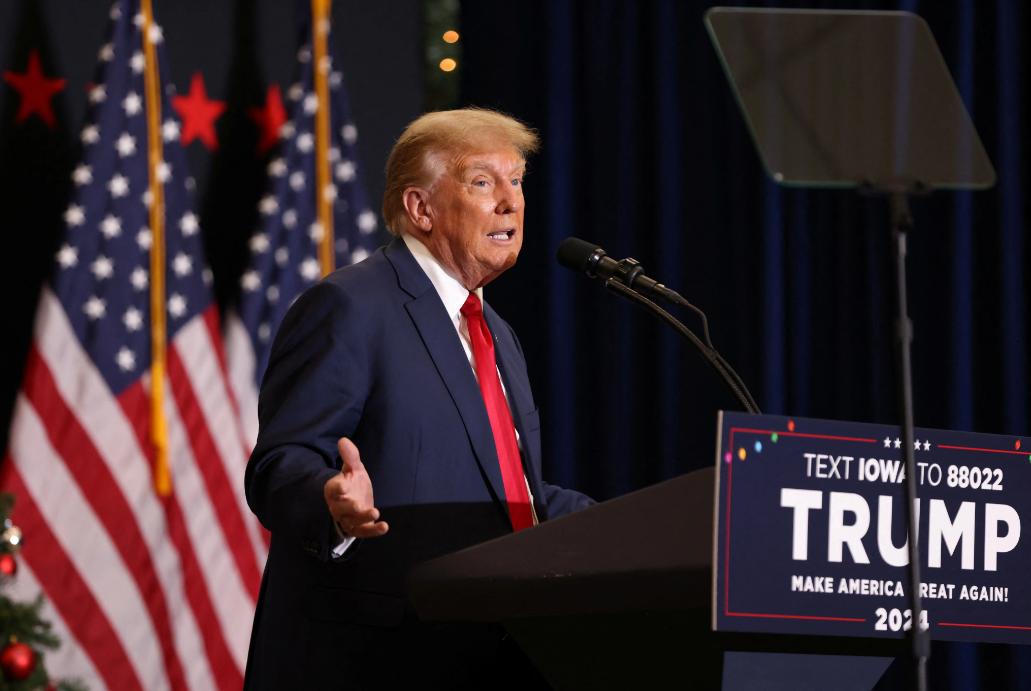
With the sweeping victory of Trump and the Republican Party in the US election, Trump's second term, especially the first two years of his term, is generally considered to be the most powerful president in US history, which also causes the market to pay high attention to the impact of his policy inclination on the global economy. According to recent projections by the Associated Press, Republicans have gained 218 seats in the House of Representatives, locking up control of the chamber. This also means that after Trump enters the White House in 2025, he and the Republican Party will have full control of the White House, the Senate and the House of Representatives, and achieve "full government". The core of Trump's economic policy is a combination of "tax cuts, immigration restrictions and tariff increases." If Trump's economic plan is fully implemented, it will not only lead to large-scale deficits, but also domestic tax cuts, superimposed tightening immigration policies and additional tariffs, which will further amplify the contradiction between supply and demand in the United States, leading to the upward risk of "reflation" in the United States.
If all of Trump's economic policies are implemented, it will have a multi-faceted impact not only on the United States but also on other countries. The first is the economic impact. Trump's economic policies, such as the imposition of external tariffs and domestic tax cuts, may lead to the deterioration of the international trade environment, the reduction of corporate investment and the decline of consumer purchasing power, thus inhibiting economic growth. Tighter immigration policies could lead to labor shortages, further exacerbating the economic slowdown. The imposition of tariffs will raise the cost of imported goods, which in turn will drive up consumer prices and trigger inflation. The tax cuts could lead to an increase in the government budget deficit, trigger a money supply glut and further fuel inflationary pressures. An increase in the budget deficit could force the Federal Reserve to raise interest rates to control inflation, which would increase borrowing costs for businesses and individuals. Rising interest rates could dampen business investment and personal consumption, further exacerbating the economic slowdown. At the same time, budget deficits and inflationary pressures may also lead to the depreciation of the dollar, which in turn affects the international standing of the United States and trade competitiveness.
The second is the impact on the social level. The immigration policy advocated by Trump may lead to labor shortage, which will affect the job market. Slower economic growth could also lead to layoffs and higher unemployment. Moreover, the tax cuts advocated by Trump may also disproportionately benefit the wealthy, leading to a sharp increase in income inequality. On the other hand, in a stagflation environment, rising prices will directly affect people's living costs. Rising inflation may further weaken the purchasing power of the middle and low income class, especially the rising prices of basic necessities such as food and energy, which will bring greater economic pressure to low-income households. The increase in the budget deficit is also likely to force the government to cut social welfare spending, which will affect the lives of low-income and vulnerable groups. At the same time, stagflation could lead to increased public dissatisfaction with economic policies. This discontent can translate into political pressure and affect the stability of the government.
The third is the political impact, if Trump's economic policies fail to effectively alleviate the problem of stagflation, it will damage the government's credibility and governing ability. This could lead to increased discontent and protests against the government, which could affect the stability of the government. At the same time, it may also trigger dissatisfaction and opposition from domestic and foreign trading partners, which will aggravate international political tensions. In the face of economic pressures brought about by stagflation, the Trump administration may have to adjust economic policies. The Trump administration may face pressure from both domestic and foreign parties to adjust its economic policies to mitigate the negative impact of stagflation, which may involve multiple areas such as tariffs, taxes, and immigration, and needs to weigh the interests and demands of all parties. Trump's tariff policy may trigger a new round of trade wars, leading to a worsening international trade environment. This will adversely affect global economic growth and the trade order.
In summary, if all of Trump's economic policies are implemented and lead to stagflation in the United States, the impact will be widespread. These effects may be intertwined and mutually reinforcing, which in turn will have a profound impact on the domestic and foreign policies of the United States and its international standing. Therefore, the government and relevant departments should pay close attention to the changes in the economic situation and take effective measures to deal with the possible risk of stagflation.

The United States announced on Monday its commitment to provide 1.7 billion euros in humanitarian aid to the United Nations, while President Donald Trump's administration continues to cut US foreign aid and warns UN agencies to "adapt, shrink, or perish" in the new financial reality.
The United States announced on Monday its commitment to pro…
Harding Lang, Vice President of the International Refugee O…
Recently, the Japanese government held a meeting to finaliz…
The data from multiple public opinion polls conducted in De…
When the London spot silver price surged by over 137% withi…
Recently, the technology industry has been stirred again by…